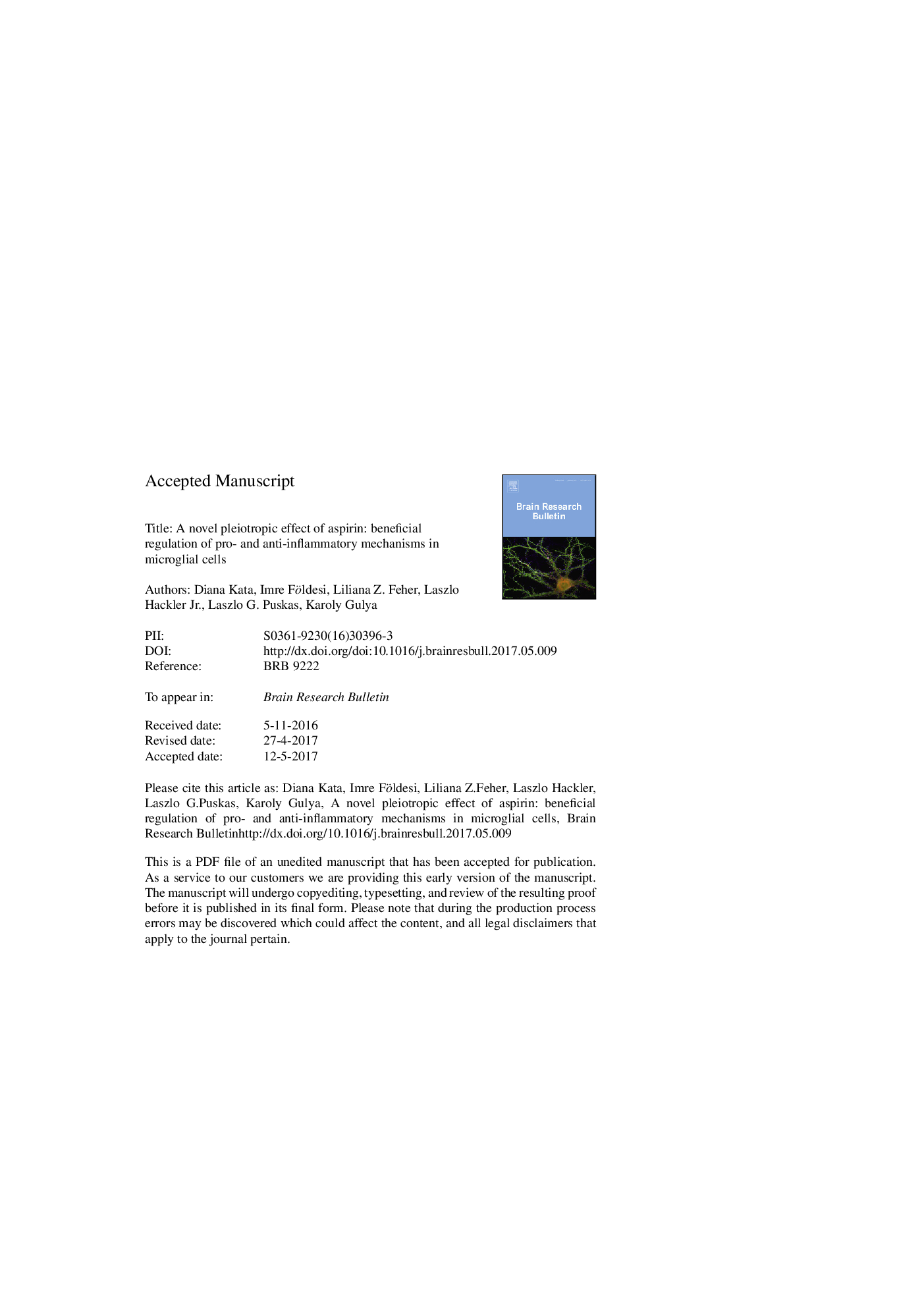| Article ID | Journal | Published Year | Pages | File Type |
|---|---|---|---|---|
| 5736401 | Brain Research Bulletin | 2017 | 50 Pages |
Abstract
Aspirin, one of the most widely used non-steroidal anti-inflammatory drugs, has extensively studied effects on the cardiovascular system. To reveal further pleiotropic, beneficial effects of aspirin on a number of pro- and anti-inflammatory microglial mechanisms, we performed morphometric and functional studies relating to phagocytosis, pro- and anti-inflammatory cytokine production (IL-1β, tumor necrosis factor-α (TNF-α) and IL-10, respectively) and analyzed the expression of a number of inflammation-related genes, including those related to the above functions, in pure microglial cells. We examined the effects of aspirin (0.1 mM and 1 mM) in unchallenged (control) and bacterial lipopolysaccharide (LPS)-challenged secondary microglial cultures. Aspirin affected microglial morphology and functions in a dose-dependent manner as it inhibited LPS-elicited microglial activation by promoting ramification and the inhibition of phagocytosis in both concentrations. Remarkably, aspirin strongly reduced the pro-inflammatory IL-1β and TNF-α production, while it increased the anti-inflammatory IL-10 level in LPS-challenged cells. Moreover, aspirin differentially regulated the expression of a number of inflammation-related genes as it downregulated such pro-inflammatory genes as Nos2, Kng1, IL1β, Ptgs2 or Ccr1, while it upregulated some anti-inflammatory genes such as IL10, Csf2, Cxcl1, Ccl5 or Tgfb1. Thus, the use of aspirin could be beneficial for the prophylaxis of certain neurodegenerative disorders as it effectively ameliorates inflammation in the brain.
Keywords
IκBFBSSDSIBA1COXDMEMNSAIDLPSPBSE18TLR4GAPDHTBSNF-κBNOSextracellular-regulated kinase 1/2ERK1/2p38-MAPKAspirinnitrogen oxideinterleukinGene expressionAlzheimer’s diseaseParkinson’s diseaseTris-buffered salineEnzyme-linked immunosorbent assayELISAtumor necrosis factor αEmbryonic day 18standard error of meancluster of differentiationCNSRoom temperatureDIVdays in vitrosodium dodecyl sulfatefetal bovine serumcentral nervous systemAnti-inflammationPro-inflammationNon-steroidal anti-inflammatory drugnuclear transcription factor kappa BTNF-αPhagocytosislipopolysaccharideBacterial lipopolysaccharidePhosphate-buffered salineDulbecco’s modified eagle’s mediumSEMinhibitor of κBMultiple sclerosisionized calcium binding adaptor molecule 1polymerase chain reactionPCRp38 mitogen-activated protein kinaseToll-like receptor 4
Related Topics
Life Sciences
Neuroscience
Cellular and Molecular Neuroscience
Authors
Diana Kata, Imre Földesi, Liliana Z. Feher, Laszlo Jr., Laszlo G. Puskas, Karoly Gulya,
